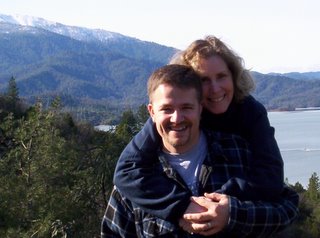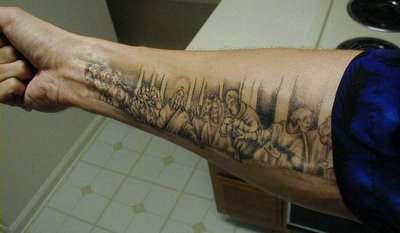What is the church?
What is your role in receiving from the church?
What is your role in giving to the church?
These were all great questions. But his last question really got me thinking and really challenged me. He asked: What is your role in participating in the missional nature of the church?
DEFINING TERMS
To answer this I need to pause briefly and define a couple terms – not because I think you don’t know what they mean, but just for clarity so you can know what I take them to mean as you read on.
In my (albeit limited) experience, there has been a lot of role separation in church. People say “I can’t do (fill in the blank)” and look to someone else: The mindset that only pastors can talk about Jesus to someone who is asking questions, or only a Sunday school teacher can help little Johnny learn about Jesus, etc. From this, we have the idea that it is only “missionaries” who “go into all the world”
If I’m honest with myself, I have to admit the reason I have thought this way is because it is easier to be lazy and assume someone else will do “it” over “there” somewhere. Bob Bennett sings a song called “The Doing of the Thing” and part of the lyrics say:
Half way ‘cross the world,It is easier to write a check and “support” a “missionary” than it is to wake up and realize going into “…all the world” starts at my front doorstep. It is tough because this realization brings with it a responsibility.
Somebody does our bidding
Because we like to pray
With our fingernails clean
A lot is being said and written these days about the idea of “being the church” as opposed to “doing church” – as if the two concepts are somehow mutually exclusive. I’m sad to admit I have been a voice in that camp. But just this morning The Holy Spirit made a connection for me between this idea and James 1:22-26. I now see both concepts are far from being mutually exclusive! They are actually complementary! According to the economy of God’s Kingdom, apparently one cannot “be” church without “doing” church!
I think much of this well-intentioned reactionism of “being” vs “doing” is simply in response to the over-busyness and driven-ness of today’s Western North American culture, and has little or nothing to do with actual Kingdom living.
Now, I’m no scholar, but it seems to me the word “missional” implies anyone can do it, and every Jesus follower should be doing it, since it is what Jesus does and what Jesus tells us to do! His body is to be, by design, “missional” in nature.
HOW DO YOU DO THAT?
So then, from the perspective of someone who wants desperately to move away from the cultural influences on me to stay overly busy and driven; who wants simply to “be” church, but also wants “doing” church to flow naturally out of that, what does it look like for me to be missional?
Simply put it means I want to give away facial tissue wherever I am.
Here’s what I mean: When was the last time you asked someone for a "Safeway Brand, Aloe-Based-Moisturizer Infused, Facial Tissue"? You probably never have. You asked for "Kleenex". This is a brand name, but it has become synonymous with almost any and all versions of the product itself.
There are many examples of this throughout our lives (did you know “Xerox” is not a verb?).
Here’s another example:
Waiter: "What would you like to drink?"
Customer: "Coke"
Waiter: "What kind?"
Customer: "Orange"
Waiter: “What kind?”
Customer: “Orange Crush”
In some parts of the South, (especially near Atlanta!) the word "Coke" has become synonymous with any and all soft drinks -- and has therefore become less meaningful and specific. After using the word “Coke”, more words are needed to clarify what is meant by that one word, since it could mean so many things to so many people.
 CHURCH BRANDING
CHURCH BRANDINGLikewise, "let's go to church" has come to mean something to the population at large (both in and outside the subculture of Western American Evangelicalism). This culturally adopted meaning is more generic and subjective than is healthy, I think. In that subjectivity there lies a whole host of negative meanings for many, many people (churched and unchurched alike).
With that in mind, allow me to take the Kleenex analogy one step further:
It is one thing for me, as a person who recognizes my own nose is runny, to take the initiative and go to someone who has some Kleenex, and then take the initiative to ask the person for some Kleenex by brand name.
It is quite another thing for that person to come to me and develop relationship with me. Then, once I know they care about me they might say “Here, I noticed your nose is running” as they hand me some facial tissue.
Do you see the difference?
There are people. Surrounding me all the time. People who have a preconceived notion of what church is like because of what the "brand name" of "church" has come to mean to them in this culture. Because of this notion, they would never go to “that kind of place" and ask for the help they need, or engage in relationship in any way with “that kind of person” who regularly hangs out in “church”.
Before I move on I need to make something explicitly clear: I love the church I currently attend. It is a standard Vineyard church, with a few folks who work as paid staff: A Senior Pastor, an Office Admin person, and a few part time folks. I’m an Associate Pastor, but I’m not paid by the church. We are in the process of purchasing the building in which we meet. We meet on Sunday mornings and once a month we have a Sunday evening service. It is a place of life and health for me and for many others who come to Sunday services and weekly Home Groups and in other ways participate in the life of the body of Christ. I’ll say it again: I love my church and I don’t see anything wrong with this church continuing in the path it is on –- Jesus has great plans for this local expression of the Kindgom, and I am stoked about that! I feel the same way about most churches I’ve visited. Most of them are vibrant places where Jesus is at work in the world, and that is a good and pleasant thing in the eyes of God!
But my heart has become burdened for a different set of people than the ones with whom I currently relate in that church setting. My heart has started to ache for the people who would never consider going to “that kind of place”, who are often very resistant to my attempts at explaining how “my church isn’t like that!” It has become my experience that people who would never consider going to “that kind of place” are firmly entrenched in their set of beliefs about “church”. So, I’ve stopped trying to convince them they’re wrong. Perhaps some of them will still darken the door of a church some day. But I think most of them will respond like a coworker once did when I invited him to Easter Services. He politely declined, but later told another coworker “Yeah, Keith invited me too, but I already have a church I don’t go to.”
To go back to the Kleenex analogy of “church” branding, for me “being missional” means this: Rather than opening up a local franchise of The Kleenex Store, and advertising in the Yellow Pages and on a slick website, and also sending out cool postcards and then hoping people come to my local franchise of The Kleenex Store…
…I just wanna give away facial tissue wherever I am.
Rather than pay overhead on a building and have the rest of my precious other resources go to paying for staff salaries and benefits packages, I just want all my energy and resources to go into making sure I always have plenty of facial tissue to give away wherever I am.
Rather than spending my personal energies trying to motivate my coworkers and business founders at The Kleenex Store, telling them they need to go find people and bring them to The Kleenex Store so they can get some of our own really cool edgy Kleenex, and then not only can the people who come get their runny noses fixed, we can also become a bigger better local franchise of The Kleenex Store…
…instead I just want to go to people I would normally meet in day to day life, and befriend them and offer them facial tissue.
So many people lump the word "church" in with so many other ideas and concepts. I want to be free from those societally-imposed restrictions. To so many people following Jesus, "church" is a building and organization with a staff and a mortgage and ministry leader needs. And so many people who aren't following Jesus see "church" as an organization that wants to parent them and tell them where they are wrong and bad -- and then ask them for money.
I want to be free from both these stigma. And I want to reach people who are staying away from Jesus because of those misconceptions. In order to do that, I feel a need to move away from the hint of those notions, and just concentrate, as Bob Bennett puts it, on "The doing of the thing".
Instead of waiting for “them” to come to “us” to ask for a Kleenex (since they would never do that) I want to go to them and offer something for the snot in their nose.
CHURCH LANGUAGE
In fact, instead of using language that separates "us" from "them", I really want to find a common set of terms which can be understood by all. But I also recognize the inevitability of using terms which find their fullest meaning only within the context of the Kingdom of God. Jesus told people to eat His flesh -- Jesus Himself was not "visitor friendly" at times, so I'm not talking about dumbing anything down! I'm talking about using approachable language and introducing concepts in terms which can be wrestled with -- the way I naturally do that is with word pictures and parable sorts of stories.
SOUNDS GOOD IN THEORY BUT WHAT DOES IT ALL LOOK LIKE?
Here's another story to help explain where I am at, especially in light of what I am reading these days.
When I first showed up at Calvary Chapel in San Francisco in 1987, the style of gathering was radically different from what I was used to. But it wasn't the difference in order of service which impacted me, at least not consciously. It was the people. During the time of music, they were giving themselves wholeheartedly and passionately to Jesus. I had never really seen that. And then afterward, when they talked and studied and we went to lunch -- they lived like that.
I knew four things all at once:
1) This was not the only way to do it (I had certainly seen and experienced other ways)
2) This was not the only place to do it (I had certainly been other places)
3) I questioned myself and God and said "Are these people just fanatics and weirdos?" But the Holy Spirit resonated and called to my heart and said "this is the way it is supposed to be.”
4) At the same time I knew this was true for me for the season, but did not necessarily imply all other forms and styles and representations of The Kingdom were bad or wrong or "less than" this one.
It is the same with the books and blogs (and lives!) I have been reading over the past few years. Though it is only one person's or one group's interpretation and understanding of what *is*, and I understand that -- it is radically different from what I have grown accustomed to understanding in terms of the workings of the church. In other words, it has helped me move beyond my own misconceptions and preconceived notions of what “church” means.
As I read these books and blogs and lives, the Holy Spirit resonates in me and says "this is what it is supposed to be like for you in this new and coming season -- and I am doing it not just with you but with many -- to reach many."
EXPONENTIAL EQUATIONS
When I was in the Navy a friend told me about a ministry called "The Navigators". They had a radical idea of "witnessing" and "evangelizing". The idea was this: If I tell 1000 people a year for 10 years, I could (personally!) tell 10,000 people about Jesus! But if I told just 2 people a year for 10 years, and during the 6 months or so I spent living life with each of them, we really went deep with God together...and if each of the 2 people I told then go on to tell and go deep with 2 people a year, and if each of *them* go on...then at the end of the 10 years, there will be far more than 10,000 disciples, and each year the disciples made will be far more equipped to make more disciples who will then go make disciples.
ON BEING MISSIONAL
Along these lines, I’ve been asking God and myself and others what life would look like if I moved away from the formal structured "church" meeting similar to what I’ve experienced in the past. What if I and some really close friends moved to a new place and:
1) Hung out with people -- neighbors, coworkers, people in my bowling league, etc -- in our day-to-day lives. What if we were real with them and went and fed the poor and helped the needy with them, and just in general shared our sorrows and problems and triumphs and joys with them, etc -- whether they were following Jesus or not. And all of us (those following and those not following Jesus) just loved each other and got through life together. But these close friends & I also made sure that we intentionally...
2) Hung out with a small number of people who *are* following Jesus (but not on Sunday mornings or maybe not on weekends at all -- they are just too awesome to not share with people who don't know Jesus!) so we could pray for one another and share at a deeper level as the Holy Sprit led us, to walk out life in The Kingdom. Then as we all became closer and more like Jesus, including praying for others and healing people and the other stuff that would go along with helping the poor, etc and then...
3) Along the way, some of the folks from groups #1 & #2 would naturally mingle and get to know each other. The folks in group #1 would be drawn in by His presence among us, and flowing through us, so they would start hanging out in group #2 also – so that naturally and relationally, some of the folks in group #1 would start following Jesus too. And then over time, there would be more and more people in group #2, so that the group would (again, naturally) become two separate groups in terms of when/how/where/how they met -- etc etc etc.
THING CHURCH?
So if I hung out with people in a pub, or in a park, or in my home, etc, that would be one thing -- but I don't want to go "plant a House Church" or a "Park Church" or even a "Pub Church" or anything like that. Do you see the difference in emphasis? In general, I don't want to "aim" at any sort of formalized structured "thing" and call it "[Thing] Church" -- does that make sense?
On the other hand I absolutely want to stay connected to other people (in other circles and settings) who are walking with Jesus in a way that shapes and forms me. I want to be connected to people who are "going to church" and stuff. I want to stay connected to an association of people who are all walking with Jesus together.
I think, if anything, occasionally attending the rituals in High Church liturgy (Episcopal, Lutheran, Catholic, Orthodox, etc) might be the least distracting for me. As long as they did not become rote, they could help provide an occasional "framework", like a friend of mine has said -- a "place to hang things once in awhile".
WRAPPING UP THE BOX OF KLEENEX
So in my own round about and verbose way, that’s how I see myself participating in the missional nature of the church.
I don’t know about you but my runny nose hasn’t been fixed yet. So I’m in touch with how much I still need the facial tissue myself. In fact, that might be the main reason I try to have so much with me all the time: because I need it! Sadly, I often leave the house without it though. I forget I need it sometimes.
That’s why, along with that desire to always be giving away facial tissue wherever I am, I still want to be part of a group of runny-nosed-people-who-recognize-their-need-for-facial-tissue who gather together regularly and make the best use of the facial tissue we have and can offer one another!
Now if you'll excuse me, I think I need to go wipe my nose.
~ Keith
For an interesting side-note on trademarks becoming part of common language, google your way over to this story on the google blog by the wonderful folks at Google Inc.










